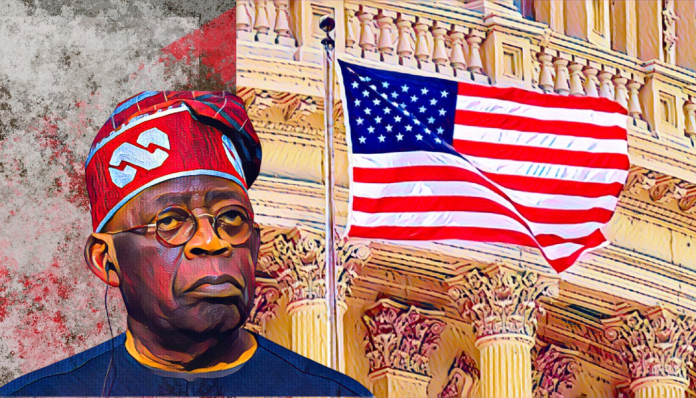Key Points
- The U S House Subcommittee on Africa opens a full scale inquiry Thursday into alleged Christian genocide in Nigeria.
- President Trump’s C P C designation allows the U S to impose sanctions on Nigerian officials complicit in religious persecution.
- Nigerian President Tinubu denies the allegations, affirming the country’s commitment to constitutional religious liberty.
The United States House of Representatives Subcommittee on Africa will open a full scale inquiry Thursday into what some lawmakers are calling an alleged Christian genocide in Nigeria.
The investigation follows President Donald Trump’s recent decision to redesignate Nigeria as a Country of Particular Concern for severe religious freedom violations, a move that has intensified the debate.
Representative Chris Smith, R N J, will chair the open hearing, set for 11 a.m. in Room 2172 of the Rayburn House Office Building.
This hearing, which will be webcast live, aims to scrutinize the scope of religious persecution in Nigeria and explore potential US policy responses.
Trump’s October 31 designation of Nigeria as a Country of Particular Concern, or CPC, cited what he called the existential threat Christianity faces in the nation.
He specifically claimed that thousands of Christians are being killed by radical Islamists.
“If the Nigerian Government continues to allow the killing of Christians, the U S A will immediately stop all aid and assistance to Nigeria, and may very well go into that now disgraced country, ‘guns a blazing,’ to completely wipe out the Islamic terrorists who are committing these horrible atrocities,” Trump stated on November 1.
Furthermore, the CPC designation, if the Senate ratifies it, would allow the U S to impose sanctions on Nigerian officials complicit in religious persecution. It also would limit some bilateral assistance.
Panels to Hear Testimony
The hearing will feature two panels of witnesses, including senior U S State Department officials.
The first panel includes Jonathan Pratt, Senior Bureau Official of the Bureau of African Affairs, and Jacob McGee, Deputy Assistant Secretary of the Bureau of Democracy, Human Rights, and Labor.
The second panel features Ms Nina Shea, Director of the Center for Religious Freedom; Bishop Wilfred Anagbe of Makurdi Catholic Diocese in Nigeria; and Ms Oge Onubogu of the Center for Strategic & International Studies.
Bishop Anagbe has repeatedly voiced concern over Christian killings. For instance, he told parliamentarians in the United Kingdom in March that Benue State had seen attacks by Islamist extremists and militant Fulani herdsmen targeting Christian communities.
He said, “The militant Fulani herdsmen bear down on defenseless villagers without consequence.” He further claimed, “They follow orders to conquer, kill, and occupy. They attack even those who have managed to escape into our I D P camps.”
Nigeria Denies Claim
Nigerian President Bola Tinubu described Trump’s claim as a misrepresentation of Nigeria’s religious reality.
“Nigeria stands firmly as a democracy governed by constitutional guarantees of religious liberty,” Tinubu said on his official X handle. “The characterization of Nigeria as religiously intolerant does not reflect our national reality.”
However, Representative Riley Moore, R W V, countered Tinubu’s denial in a Sunday interview with Fox News.
“Unfortunately, that is completely false,” Moore said. “I mean, there are states in Nigeria that have blasphemy laws. People are facing the death penalty right now for blasphemy against Islam.”
Moore claimed the death ratio in the country heavily favors Christians. He insisted, “The deaths that we have been able to garner from the facts on the ground are five to one, five to one Christians versus other minority, other religious affiliations in that country.”
He reinforced this by stating, “It is five (Christians) to one Muslim who is being killed in Nigeria.”
Moore confirmed the investigation has begun as a joint effort between the House Appropriations Committee and the Foreign Affairs Committee.
Pope Voices Concern
Pope Leo X I V also voiced concern Sunday over violence allegedly targeting Christians in Nigeria and other countries.
The Pope wrote on his verified X handle, @Pontifex, “In various parts of the world, Christians suffer discrimination and persecution.”
He specifically cited Nigeria, Mozambique, Sudan, Bangladesh, and other nations as hotspots.
Last week, Congressman Bill Huizenga offered a more cautious view, telling Arise TV that Trump was unlikely to launch military action.
Huizenga said, “I suspect that that is not a high priority of having actual military intervention, specifically in Nigeria.”
Instead, he suggested sanctions would be a more likely action. “Sanctions really cut off the flow of money, cut off the flow of travel.”
In a related development, President Tinubu dispatched an emissary, Dr Abiodun Essiet, to Plateau State last Thursday to foster intercommunal harmony.
Essiet met with Christian clerics and Fulani Miyetti Allah community leaders, successfully resolving a farm dispute that included a N500,000 compensation payment.
The congressional hearing is expected to review the scope of religious persecution and potential policy responses, including targeted sanctions and humanitarian assistance.



